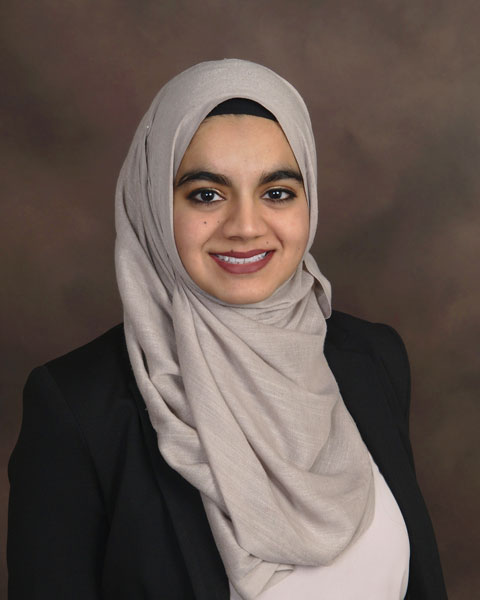
Medical Student in MGG 2016-2017
Updated: 10/8/2019
In what ways have you worked with MGG, and where are you at in your professional life right now?
I got involved in MGG during the summer between my first and second year of medical school. As a medical student, I worked on a project where I developed an asthma curriculum for parents in a local school district where we had identified disparities in the number of asthma related absences and hospitalizations amongst Spanish speaking families. Once we had identified this problem, we went ahead and developed an asthma education curriculum that was both in English and Spanish and then taught these classes to parents over the summer. That was the beginning for me. Throughout the remaining two years of medical school, I was involved in a variety of different projects ranging from assisting in the relocation process for Syrian refugees and planning different health fairs. A very important goal was to create a strong connection between the local community and MGG so that the community may have more access to more resources. As for where I am now in my career, I’m a second-year Pediatric resident at UCLA.
What programs or events did you find the most personal value in?
My first exposure to working with children and their families was through the asthma project, which was pretty early on in my medical career. This definitely influenced my future career choice and turned out to be very formative. I have continued to speak to patients and their families in a way that they can understand because of my experiences working with the asthma education project. Working with MGG, the residents from Bayview, and Hopkins nursing students to develop a health curriculum for Syrian refugees was also particularly fulfilling, as immigrant health and advocacy are very important to me. This experience highlighted the importance of such endeavors and the work it takes to elicit the needs of a community and bringing health professionals into the community to meet those needs.
You’re a Pediatric resident right now – what do the next 5-10 years look like for moving your career forward?
One thing I hope to still be involved in is advocacy work. I recently joined an advocacy council at UCLA with other fellow residents – hopefully through this initiative, we can raise awareness surrounding issues that our pediatric population is facing. I hope to continue my involvement in these types of projects as I move forward in my career.
Has MGG reinforced this goal for you, or is it something you’ve always known?
It’s something I’ve always known, but MGG allowed me the opportunity to actually carry this type of work out. The really cool thing about MGG is that it took a general desire to do something and provided me with the tools to actually turn it into a reality. Through discussions with community leaders and analyzing surveys completed by program participants, we were able to see the real time impact we had. MGG was really empowering in that way because I was able to see that even as a medical student, I was able to make a difference.
More broadly, has MGG taught you any particular lessons about the medical world as whole?
I was able to appreciate how easy it can be for us health professionals to become separated from the surrounding community and start working in our own silos. I also learned to recognize that health literacy can vary greatly amongst individuals and to not take this for granted. During some of the health fairs, I remember being asked questions by community members about subjects that we may not think to explain when we are giving a diagnosis or prescribing a medication. For example, I was asked during a session on heart health questions like “What does it mean that the heart is a muscle?” and “Why can’t we eat salty foods?” etc. These are things that we as physicians know very well, but being on the other end of things, I realized we need to do a better job explaining and teaching these things to our patients, especially our chronically ill patients. However, there are many constraints in an office visit for exploring and reviewing all of this information, which makes programs like MGG even more invaluable.
Should professionals in the medical field who don’t regularly focus on community work participate more?
I don’t think that it should be a requirement because medicine in and of itself is a very giving, selfless profession and requires a lot of sacrifice. People who go into medicine inherently are invested in the health of people and the community at large. I do believe that raising awareness about issues that are affecting the community, health-related or not, is important. Allowing each person to individually find ways to integrate addressing these issues into their practice, as well providing opportunities for physicians to be involved in the community is important. I liked MGG for that because anyone could participate, whether it be medical students or residents. It created this nice relationship between people who aren’t necessarily involved in this line of work and people who were interested in becoming more involved. I do think it should be integrated more into the resident curriculum because if you’re never exposed to it, it will be harder for people to incorporate this type of work into their future practice.
This interview has been edited for length and clarity.




